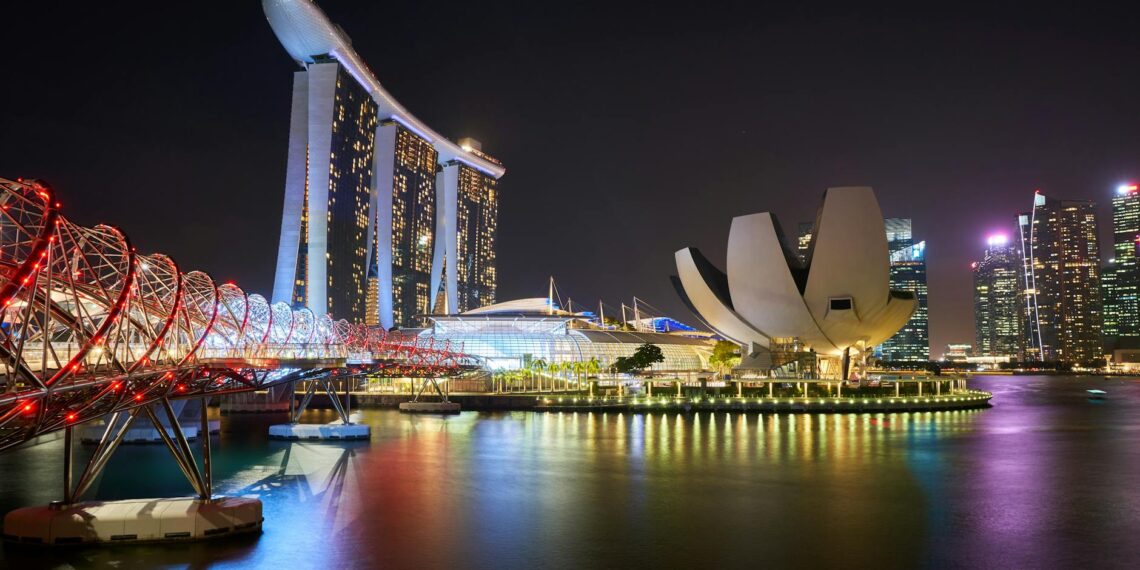The Singapore government has designated nine entities as critical to national security under the new Investment Review Act. These entities must seek government approval for any ownership or control changes, with penalties for non-compliance.
- Singapore has identified nine critical entities under its new Investment Review Act, requiring them to seek government approval for ownership and control changes.
- The Act empowers the Ministry of Trade and Industry to oversee ownership and control changes, with non-compliance potentially leading to stake disposals.
- The government can take targeted actions, including directing divestment or limiting information disclosure, against entities acting against Singapore’s national interests.
The Act covers a wide range of entity types and gives the Ministry of Trade and Industry significant powers to oversee and intervene in the designated entities. The changes are driven by the COVID-19 pandemic, supply chain disruptions, and geopolitical tensions. The Act aims to safeguard national interests and ensure government oversight of critical entities in Singapore.
Entities must seek approval from the Singapore government for changes in ownership. Any transaction without approval will be void. Buyers must notify the Ministry of Trade and Industry (MTI) within seven days of becoming a 5 percent controller.
List of Designated Entities:
- ST Logistics: A logistics company that provides supply chain management services.
- Sembcorp Specialised Construction: A construction company that specializes in building infrastructure projects.
- ST Engineering Marine: A marine engineering company that provides services for the oil and gas industry.
- ST Engineering Land Systems: A land systems company that provides solutions for the defense and security industries.
- ST Engineering Defence Aviation Services: A defense aviation services company that provides maintenance and repair services for military aircraft.
- ST Engineering Digital Systems: A digital systems company that provides solutions for the defense and security industries.
- ExxonMobil Asia Pacific: A subsidiary of ExxonMobil, a global oil and gas company.
- Shell Singapore: A subsidiary of Royal Dutch Shell, a global oil and gas company.
- Singapore Refining Company: A refining company that produces petroleum products.
The Significant Investments Review Act (SIRA) 2024 introduces a new investment management regime to regulate significant investments in entities critical to Singapore’s national security interests. The law applies to both local and foreign investors, and its implications for foreign investors are as follows:
- Increased scrutiny: Foreign investors may face increased scrutiny and review of their investments in designated entities, which could lead to delays or restrictions on their investments.
- Approval requirements: Foreign investors may need to obtain approval from the Singapore government for changes in ownership, control, or key personnel in designated entities.
- Risk of “calling-in” powers: The Singapore government has the power to “call in” foreign investors who have acted against Singapore’s national security interests, which could result in the foreign investor being required to dispose of its interest in the designated entity.
- National security considerations: Foreign investors should be aware that the Singapore government’s decisions will be guided by national security considerations, which may prioritize the protection of Singapore’s sovereignty and security over commercial interests.
Implications for Foreign Investors:
- Due diligence: Foreign investors should conduct thorough due diligence on the designated entities they plan to invest in, including reviewing the entity’s ownership structure, business activities, and potential national security implications.
- Risk assessment: Foreign investors should assess the potential risks associated with investing in designated entities, including the risk of “calling-in” powers and the potential impact on their investments.
- Compliance: Foreign investors should ensure compliance with the SIRA 2024 requirements, including obtaining necessary approvals and notifications, to avoid potential penalties or legal consequences.
- Strategic partnerships: Foreign investors may need to consider forming strategic partnerships with local entities or Singaporean companies to mitigate potential risks and ensure compliance with the SIRA 2024 requirements.
In summary, the SIRA 2024 law introduces a new layer of scrutiny and regulation for foreign investments in Singapore, particularly in designated entities critical to national security. Foreign investors should be aware of the potential implications and take steps to ensure compliance with the law to avoid potential risks and penalties.
The designation of these entities under SIRA 2024 aims to ensure that Singapore’s national security interests are protected. The law requires these entities to seek government approval for changes in ownership or leadership, among other things, to prevent any potential threats to national security.
Discover more from Thailand Business News
Subscribe to get the latest posts sent to your email.














